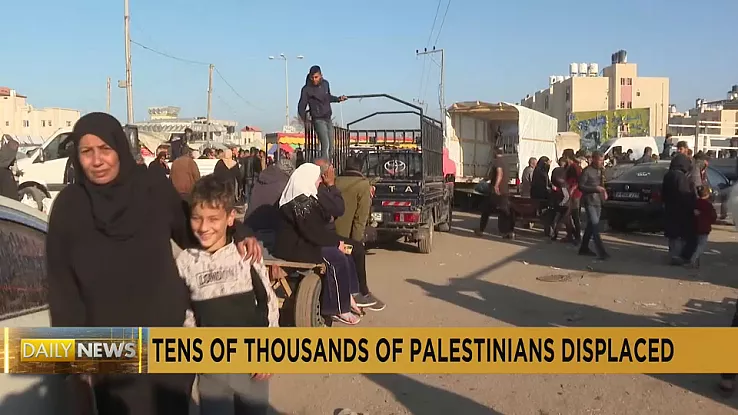By Chris Thompson
Over 10,000 Palestinians have moved into an already crowded town at the southernmost end of Gaza in recent days, fleeing Israel’s bombardment of the centre of the strip, as a senior U.N. official on Friday criticised Israel for continuing to impose “severe restrictions” on access to aid.
According to Africanews, the renewed criticism came a week after the U.N. Security Council demanded an immediate increase in humanitarian deliveries to the besieged territory.
Israel’s unprecedented air and ground offensive against Hamas has displaced some 85% of the Gaza Strip’s 2.3 million residents, sending swells of people seeking shelter in Israeli-designated safe areas that the military has nevertheless also bombed. That has left Palestinians with a harrowing sense that nowhere is safe in the tiny enclave.
READ ALSO | Raphael’s Famous Paintings Were Not Entirely His – AI Reveals
Nearly the entire population is fully dependent on outside humanitarian aid, said Philippe Lazzarini, head of UNRWA, the U.N. agency for Palestinian refugees.
A quarter of the population is starving because too few trucks enter with food, medicine, fuel and other supplies — sometimes fewer than 100 trucks a day, according to U.N. daily reports.
Drone footage taken Friday showed a vast camp of thousands of tents and makeshift shacks set up on what had been empty land on Rafah’s western outskirts next to U.N. warehouses. People arrived in Rafah in trucks, in carts and on foot.
Those who did not find space in the already overwhelmed shelters put up tents on roadsides slick with mud from winter rains.
With the new arrivals, the town and its surrounding area are now packed with some 850,000 people, more than triple the normal population, according to U.N. figures.
The U.N. said late Thursday that around 100,000 people have arrived in Rafah, along the border with Egypt, in recent days.
The town and its surrounding region had a prewar population of around 280,000, and the area was already hosting more than 470,000 people driven from their homes by the war.
The new arrivals enter a landscape of misery. Most available water is polluted. The sanitation system has broken down, and working toilets are a rarity.
Illnesses run rampant among multiple extended families all squeezed together in shelters, homes or on the street — rashes, respiratory problems, diarrhoea and other intestinal diseases.
Israel has told residents of central Gaza to head south, but even as the displaced have poured in, Rafah has not been spared.
A strike Thursday evening destroyed a residential building, killing at least 23 people, according to the media office of the nearby Al-Kuwaiti Hospital.

